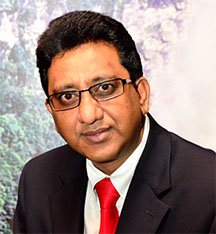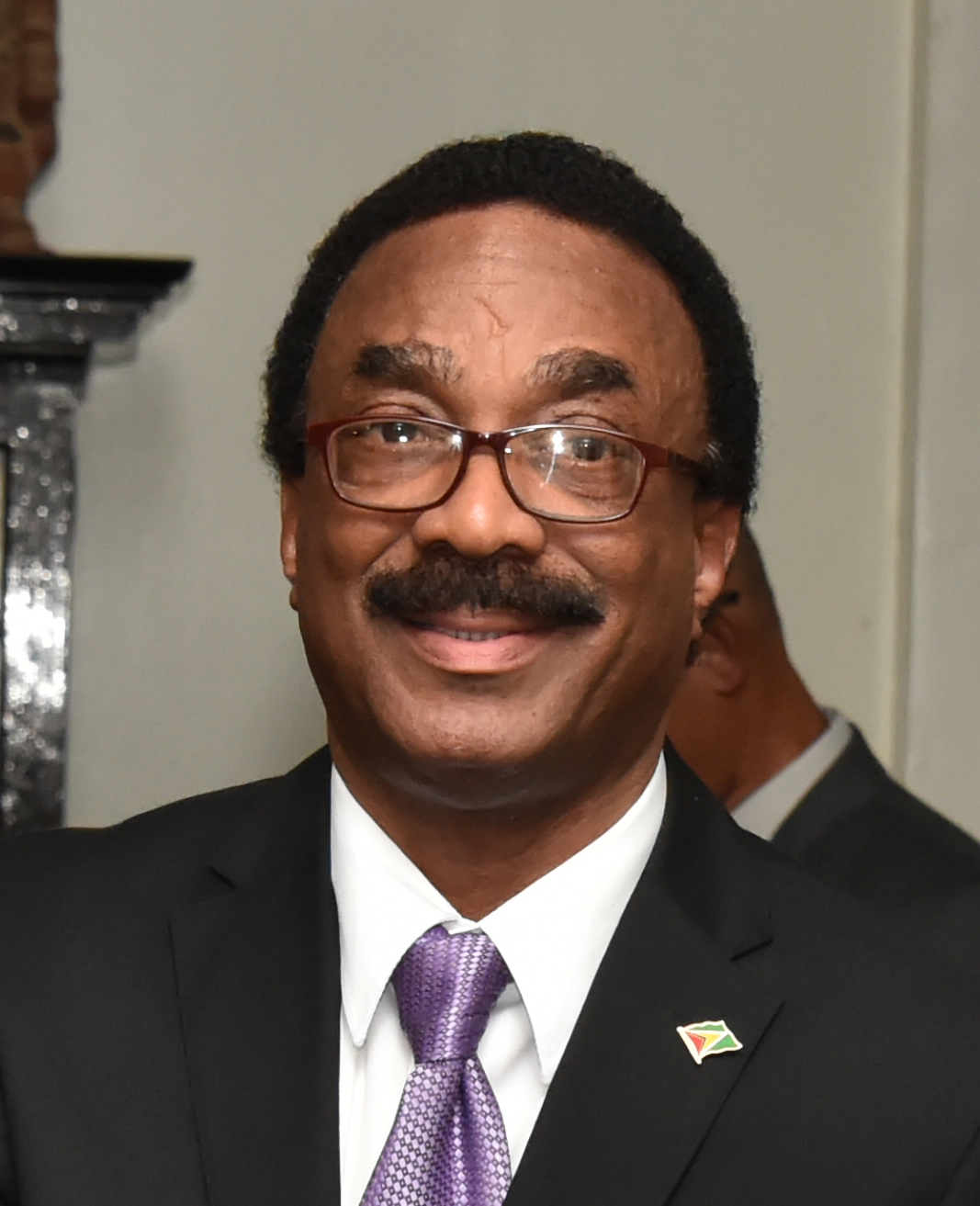Attorney General Basil Williams SC on Friday maintained that the resolution certifying the passage of the December 21st no-confidence motion against the government is invalid as it required the support of an “absolute” majority of the 65 members of the National Assembly, even as the attorney for opposition leader Bharrat Jagdeo pointed out that there is no such qualification in the constitution.
“One cannot certify an illegality… The framers of the constitution would not have intended for a government to be defeated by a majority rather than an absolute majority,” Williams said during oral submissions, which were heard by Chief Justice (ag) Roxane George-Wiltshire SC.
Williams and attorney Maxwell Edwards also argued that the resolution conflicts with Article 70(3) of the Constitution, which they say guarantees a five-year term of office.

After four hours of arguments on Williams’ application to settle the legality of the resolution, Justice George-Wiltshire indicated that she will be delivering her ruling in the case on January 31st at 1.30pm. She said, too, that she would also try her “best” to deliver a ruling at the same date and time in the action on the motion filed by Compton Reid. The ruling in a third case, which was filed by attorney and chartered accountant Christopher Ram, was previously fixed for the same date and time. The Chief Justice indicated yesterday that her plan is to deliver the judgements one after the other.
Following Speaker Barton Scotland’s declaration that the motion was carried, in light of the defection of government member Charrandass Persaud, which resulted in a final tally of 33 to 32 votes in favour, Williams has argued that an “absolute majority” of 34 votes was needed.
In supporting the arguments outlined in his written submissions, Williams advanced that the certification of Resolution 101 would not have been conclusive and that the resolution is unconstitutional as it was not passed in accordance with Article 106 (6) of the constitution.
Article 106 (6) states “The Cabinet including the President shall resign if the Government is defeated by the vote of a majority of all the elected members of the National Assembly on a vote of confidence.”
Williams reiterated to the court that the correct formula was not used to calculate the correct type of majority that was required for the passage of the motion. He said Guyana’s constitution caters for several types of majorities: a two-thirds majority, a simple majority and an absolute majority, with the latter being referenced by former Caribbean Court of Justice President Sir Dennis Byron in last year’s presidential term-limit case.
Williams also cited precedents to show that in the event of an uneven number of MPs, a fraction is usually rounded up to the nearest whole number and then one is added to get the absolute majority.
Saying that the resolution that has been certified by the Parliament saying that Article 106 (6) was properly applied, Williams also argued that in effect it would reduce the five-year term provided for under Article 70 (3).
Article 70(3) provides that “Parliament unless sooner dissolved shall continue for 5 years from the date when the Assembly first meets after any dissolution and shall then stand dissolved.”
Edwards, who spoke immediately after Williams, submitted that Section 5 of the Constitution (Amendment) Act (No 17/2000) is unconstitutional and inconsistent with Article 70 of the Constitution.
In their written submissions, it has been argued that Section 5, which purports to enable by its insertion in Article 106 of sub-articles (6) and (7) reduction in the five-year term in office, flies in the face of article 70(3), collides with it and is ipso facto and ipso jure, void for inconsistency.
“Article 106 (6) truncates the five year term as guaranteed by Article 70(3). Section 5 …is null and void, in spite of being passed by two-thirds,” he posited.
‘Strange’
Anil Nandlall, the attorney for Jagdeo, subsequently described Williams’ argument as a “strange one,” while disagreeing that the resolution conflicts with Article 70(3). According to him, the resolution is a product of Article 106. “It is the decision that the no-confidence motion produced,” he said, before adding that he did not see how it conflicted with the constitution.
Nandlall also lamented that “arguments are being made up as we go along to suggest that the no confidence motion was not passed.”
He reiterated that upon the passage of a no-confidence motion, it is the Cabinet that has to resign and not the government. “The corpus of the government of Guyana, notwithstanding that defeat, must remain. That is because there cannot be any vacuum in the executive so that legal purpose for the government of Guyana shall remain in office with a Cabinet and president that would have resigned,” he said.
In response to queries from the Chief Justice as to what happens in the absence of a Cabinet, he said “once Cabinet has to resign then that part of the constitution is no longer applicable… so the Cabinet is no longer responsible to the Parliament because the Parliament is now in a closing down mode because the constitution fixes a date for elections…which was only be changed by a two-thirds majority of the government and the opposition.”
Insisting that the situation is not difficult to understand, the former AG dismissed Williams’ majority argument, saying that the Constitution does not use any adjective in front of the word “majority.” Nandlall submitted that majority based on the legal definition means the greater number. In this regard, he said that 33 votes in Guyana’s situation would be the simple majority.
“We have to stop confusing our population,” he stressed before adding that there is nothing in Article 106 which speaks to a basis to import a word to qualify Williams’ majority.
He stressed that reckless arguments have been advanced without having regard to the consequences. He reminded the court to act judicially as there are arguments that can cause chaos. “In their desperation to set aside this one vote, they have thrown everything,” he said before making reference to the trillions of dollars that have been passed in the budget using the 33 majority vote. “Are we to tell the people we are spending money illegally?” he asked.
Meanwhile, attorney Roysdale Forde, who successfully applied for APNU Chairman Joseph Harmon to join proceedings as an interested party, submitted that Nandlall closed his case without telling the court the relevance of Article 168, which deals with voting in the National Assembly. It provides that “Save as otherwise provided by this Constitution, all questions proposed for decision in the National Assembly shall be determined by a majority of the votes of the members present and voting.”
Forde expressed agreement with the AG’s formula for calculating the majority for the passage of the no-confidence motion.
Williams later expressed confidence that their respective cases were strong. The Speaker, who was in court, has already indicated through his attorney, Rafiq Khan SC, that he will abide by the orders and rulings of the court.





